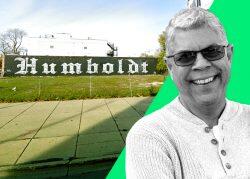Advocates are concerned that Chicago’s most recent homeless count isn’t accurate because of the impacts of COVID-19, leaving vulnerable populations uncounted and with less access to services.
The most recent data shows that those in Chicago experiencing homelessness dropped 16 percent in 2021, according to a new report from the Chicago Tribune. The Tribune reports the counts were done by volunteers and then sent to the U.S. Department of Housing and Urban Development where they’re used to allocate federal resources.
Advocates and organizations that provide services to Chicago’s homeless population expressed concern about the numbers, and said many are likely being unintentionally excluded from the count. Part of that is because of barriers due to COVID-19 and part is due to how the count is conducted, using a national “point-in-time” estimate that counts the homeless populations over a single night every year. This year’s count allowed for sampling, meaning it didn’t require volunteers to count every single area in Chicago, but to make an estimate based on neighborhood samples.
The point-in-time count in January found about 4,500 people. Despite white, Black and Latino people making up equal parts of Chicago’s population, Black people made up 73 percent of the count, compared with white people at about 13 percent and Latinos at 12 percent, according to the Tribune.
COVID-19 distancing measures further complicated the statistics. Because a lot of shelters were at a reduced capacity, those who would have normally been at shelters weren’t counted. Previous measures during the pandemic, like federal aid and the moratorium on evictions, likely prevented some homelessness before they expired last year.
HUD spokeswoman Andrea Roebker told the Tribune that the most recent drop shows that federal efforts had a positive impact.
Local organizations have vastly different numbers than the federal count. Sam Carlson, manager of research and outreach for the Chicago Coalition for the Homeless, told the Tribune the group uses several statistics including public school counts of homeless students and people who use homeless services to make their estimate. The coalition estimated about 58,000 homeless people in Chicago in its last count in 2019.
The pandemic has also shuttered some previous homeless shelters, like those in churches. Chicago was also housing people experiencing homelessness in unused hotels, but the city ended it’s program at Hotel Julian last week.
Experts also said that a wave of evictions could be coming soon, as aid runs out and evictions, which take several months to process, are executed.
[Chicago Tribune] — Miranda Davis
Read more


